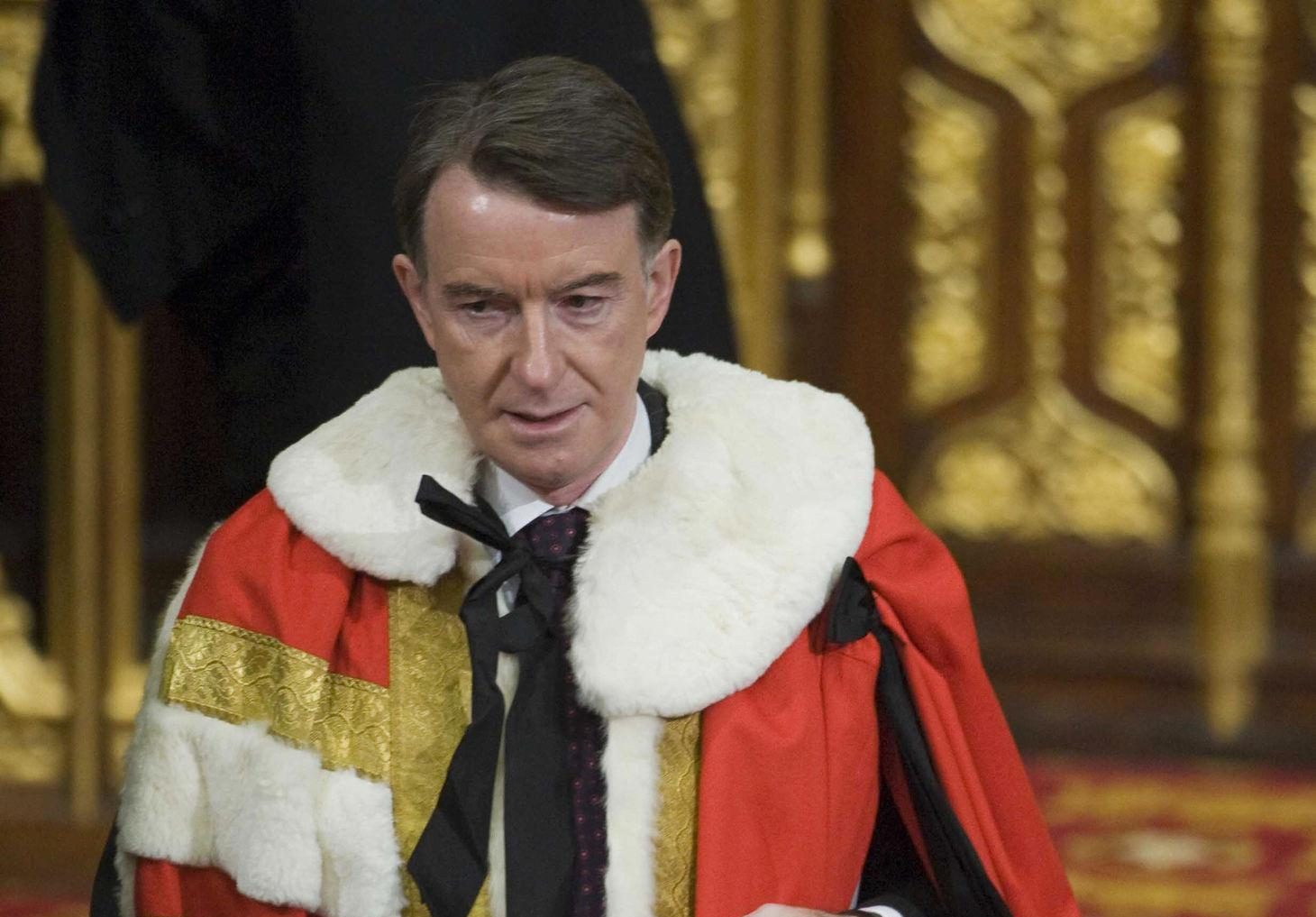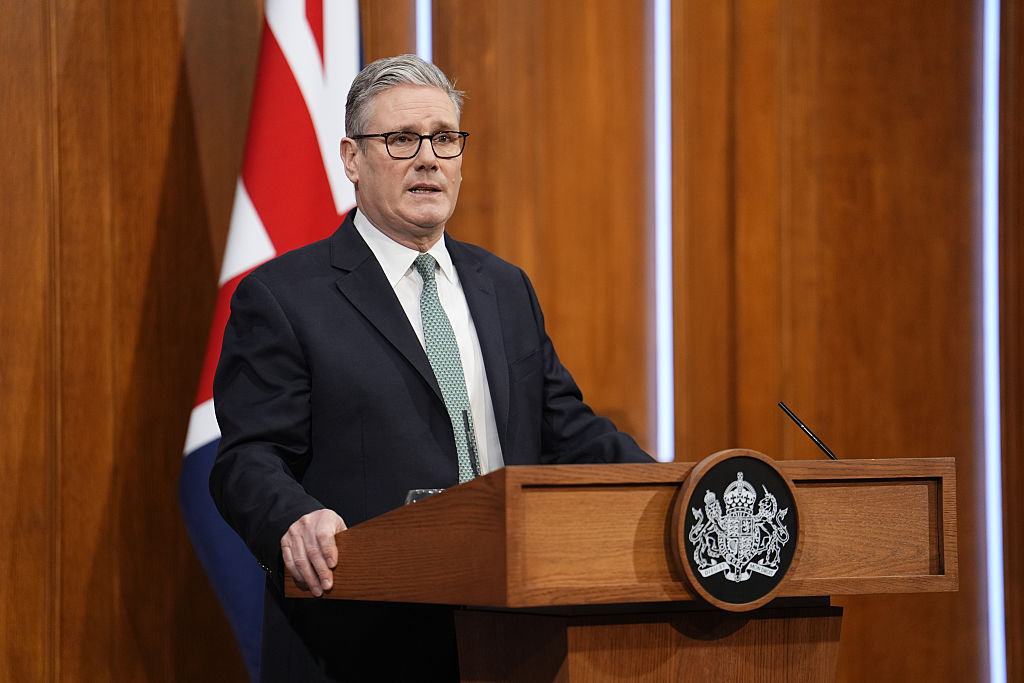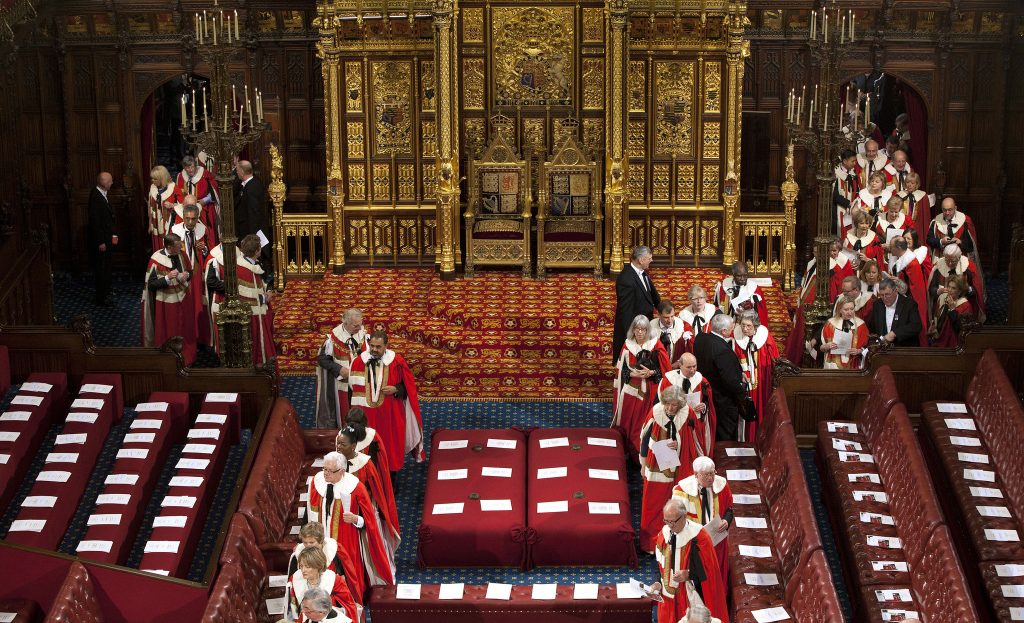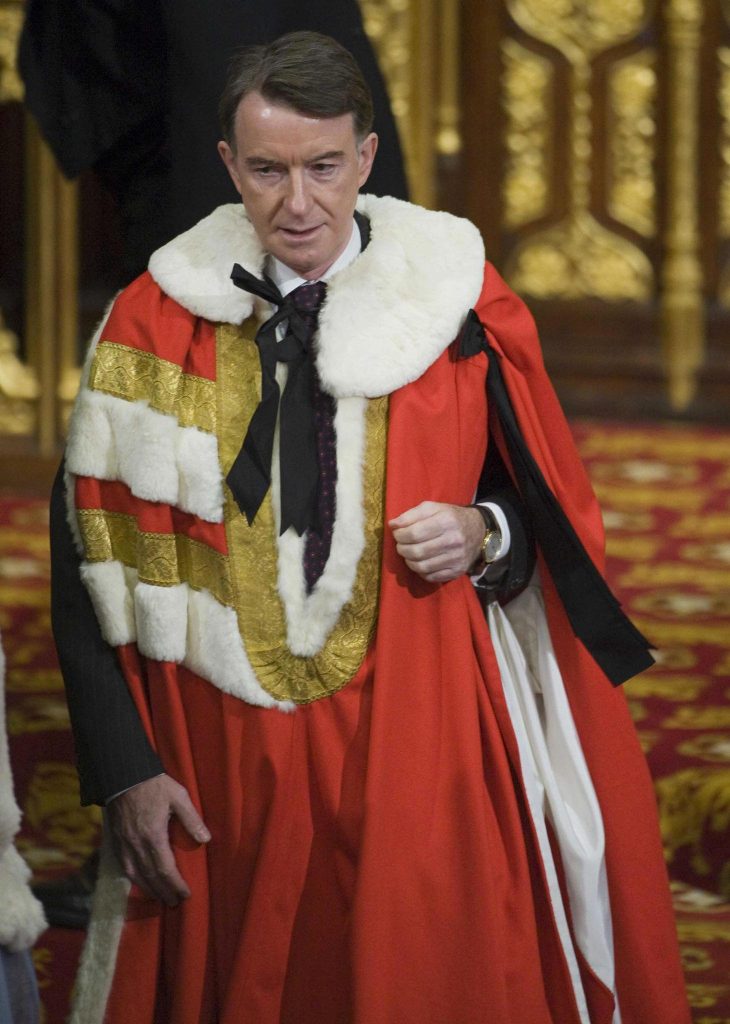Politics
What’s in a name?

QUITE a lot, actually, as Secretary of State for Wales Alun Cairns found out last week. The announcement that the Second Severn Crossing would henceforth be known as the Prince of Wales Bridge in honour of HRH Prince Charles was met with a somewhat equivocal response from the population of Wales.
The name change, agreed by the Queen and Theresa May, was timed to mark Prince Charles’s 70th birthday, and the 60th anniversary of his investiture as Prince of Wales.
At the time of going to print, around 30,000 people had signed a petition calling for the name change to be scrapped. Plaid Cymru, as might perhaps be expected, were among the more vociferous objectors, with leader Leanne Wood asking whether or not this was a late April Fool prank.
Mr Cairns invoked the Conservative Party’s secret weapon – the ‘silent majority’ – which he suggested gave the name change their full, if silent, backing.
Speaking to the BBC, he implied that a small group of republicans were behind the opposition: “We knew that public opinion would be broad,” he remarked. “Of course there will be some republicans who dislike it, but I think that they should at least have respect for the Prince of Wales because of the work he does in the community.
“I know some republicans who strongly support the charities that he stands for – the Prince’s Trust, Prime Cymru , Business in the Community – and the fantastic work that they do. And I would hope that they would at least look at the work of those charities and recognise that this is a fitting title – for that work if nothing else.”
While the work carried out by groups such as the Prince’s Trust is indeed laudable, it would surely have made more sense to call it The Prince’s Trust Bridge, or indeed the Prime Cymru Crossing, if the name change was meant to celebrate Prince Charles’ charitable works.
The Welsh Labour Government was conspicuously silent on the matter, and it emerged shortly afterwards that Mr Cairns had informed them of the plans some time previously. They raised no objections. This led Plaid Cymru AM Adam Price to accuse the Welsh Government of taking its eye off the ball.
“It’s rare in Wales for tens of thousands of people to sign a petition on an issue like this, with such an emotional and defiant reaction,” he added.
“Of course it’s not just about the name of the bridge, but the symbolism, and the way the decision was made.
“Attention will rightly turn to the Labour Welsh Government and the first minister in the coming weeks, as they failed to raise objections or to recommend that the public’s views were sought.
“We potentially have a position where Labour politicians, as well as Plaid Cymru, will be disappointed in their own first minister, and will be left scratching their heads about why some kind of wider consultation wasn’t proposed.
“Serious questions need to be asked of why the Labour Government took its eye off the ball and, given the strong public reaction, we should now at the very least expect the Welsh Government to make formal representations to the UK government in favour of public consultation.”
This was the cue for UKIP AM Gareth Bennett to enter the fray, with an insightful analysis of the situation, and a solution which would satisfy all concerned: “Rather than getting into a row about a name, Welsh Labour and their bedfellows in Plaid Cymru should be working to build bridges with the Government in Westminster to secure the Brexit that the people of Wales voted for,” he insisted.
“Coupled with their bogus legislation on a supposed ‘power grab’, the people of Wales will see this for what it is; a cynical attempt by Plaid and Welsh Labour to claim they’ve been hard done by yet again.
“The people of Wales voted by a clear majority for Brexit, far more than the very few who cling on to a vain hope of a ‘Welsh Republic’. It’s time the establishment in Cardiff Bay and London got on with the day job and stopped their pointless virtue signalling.”
This statement, while proving conclusively that no topic cannot be linked – at least in the mind of a UKIP AM – to Brexit, did little to indicate the party’s stance on the matter.
The comments sections of any article concerning the subject were an education, in the loosest sense of the word. Responses ranged from calling those in support of the change gutless appeasers, to others suggesting that Welsh Nationalist outbursts like this were the reason that Wales can’t have nice things.
Enter Rod Liddle.
In his column for the Times, the former Today Programme editor wrote: ‘The Welsh, or some of them, are moaning that a motorway bridge linking their rain-sodden valleys with the First World is to be renamed the Prince of Wales Bridge. In honour of the venal, grasping, deranged (if Tom Bower’s new biography is accurate) heir to the throne. That Plaid Cymru woman who is always on Question Time has been leading the protests. They would prefer it to be called something indecipherable with no real vowels, such as Ysgythysgymlngwchgwch Bryggy. Let them have their way. As long as it allows people to get out of the place pronto, should we worry about what it‘s called?’.
This 100 word snippet has so far led to at least 19 complaints to Ofcom – or one for every five words – and in fairness it is difficult to see how Mr Liddle could have managed to insult or denigrate more aspects of Welsh life and culture in such a short article.
Plaid Cymru MP Liz Saville Roberts, told Radio Cymru’s Post Cyntaf: “The two things in particular which incensed me were his attempts to belittle the Welsh language, and to compare poverty in Wales with England’s wealth as a first world nation as something amusing.
“We have to ask when we should put up with this and whether or not the Sunday Times cares about readers here in Wales.”
Carmarthen Mayor and veteran journalist Alun Lenny said: “As a supposedly highly-experienced journalist Rod Liddle has let himself down badly by writing such puerile stuff. His sneering comments about ‘rain sodden’ Wales not belonging to the First World and his attempt to get a cheap laugh at the expense of the Welsh language is the basest racial stereotyping.
“At a time when anti-Semitism dominates the political agenda, it’s deeply disappointing that the Sunday Times allowed such a nasty and offensive little article to be published. You must not be nasty to the Jews, but it seems we Welsh are fair game.”
Moving forward, in the somewhat unlikely event that the massed discontent surrounding the name change in Wales has any effect on the UK Government and Royal Family, several suggestions for a new name have been floated.
Pont Arthur – thus referencing the Prince of Wales’ middle name and a national hero – was one suggestion. Given that the tolls are due to be abolished this year, the Rebecca and her Daughters Bridge has a certain ring to it.
If a royal reference was a requisite, Carmarthen East AM Adam Price provided one: “If we must name this bridge after a prince let it be Owain, surviving son of the last real Prince of Wales (pre-Glyndwr) who, arrested at age eight, spent his entire adult life in a wooden cage in Bristol Castle so the Welsh would know their place. If only we knew our own history,” he remarked.
Aberaeron’s Lib Dem County Councillor perhaps hit the nail on the head. “Can’t decide which comes first in my train of thought – offence? certainly, Anger? most definitely, or should indifference top my list? Because in Wales, it will always be the Severn Bridge – and a mighty fine name that is!”
Politics
Ceredigion council tax expected to rise by 4.7 per cent

A BETTER financial settlement for Ceredigion from the Welsh Government along with a fresh grant is expected to see council tax bills in the county rising by less than five per cent this year, far below previous fears of a rise as high as nearly nine.
Last year, for the 2025-’26 budget, Ceredigion saw a council tax rise of 9.3 per cent.
While council tax makes up a proportion of the council’s annual revenue, a crucial area of funding is the Aggregate External Finance (AEF) rate from Welsh Government.
Ceredigion was to receive a 2.3 per cent increase on its settlement, some £3,388,000 for a total of £150,670,000, placing it at joint 13th of the 22 local authorities in Wales.
Following a later Welsh Government and Plaid Cymru agreement additional funding for local government was secured, giving Ceredigion additional funding.
Back in November, before the increased settlement was announced, Ceredigion Leader Cllr Bryan Davies said that early estimates indicated that an 8.9 per cent increase in council tax would be necessary, but an improved position of 6.9 per cent had been indicated as a result of a further modelling of service cost pressures and operational savings.
Following the improved settlement, members at the January meeting of Cabinet heard from Cabinet Member for Finance and Procurement Services Cllr Gareth Davies a recommendation for a 4.75 per cent council tax increase as part of a draft budget requirement of £221.493m was being mooted.
That position has improved again, following financial support towards the Mid and West Wales Fire Service Levy, members of the February 3 meeting of the council’s corporate resources overview and scrutiny committee heard, the funding now dropping the expected council tax increase to 4.7 per cent, equivalent to an extra £7.39 per month for the average Band D property for the next financial year.
Members of the committee agreed to note the 4.7 per cent figure, with the final council tax recommendation being considered by Cabinet on February 10; the final decision on the budget being made by full council on March 2.
international news
Mandelson quits Lords amid police probe over Epstein links

Peter Mandelson has announced he will retire from the House of Lords with immediate effect, as mounting political and legal pressure grows over claims he shared sensitive government information with convicted sex offender Jeffrey Epstein.
Parliamentary officials confirmed that Peter Mandelson formally notified the Clerk of the Parliaments of his decision, ending his membership of the upper chamber from Tuesday (Feb 4).
The move follows reports that the Metropolitan Police Service is reviewing allegations of possible misconduct in public office connected to emails said to have been forwarded to Epstein while Mandelson was business secretary during the 2008–09 financial crisis.
Downing Street has confirmed that material has been passed to police after an initial Cabinet Office review.
Government fury

Prime Minister Keir Starmer told cabinet colleagues Mandelson had “let his country down”, according to No 10, and officials are now drafting legislation that could strip him of his peerage entirely.


Removing a life peer is rare and would require an Act of Parliament.
If passed, Mandelson would lose the title “Lord” altogether — an extraordinary step that has only been considered in the most serious cases.
Senior ministers have described the alleged passing-on of market-sensitive government discussions as “disgraceful” and a “betrayal of trust”.
What police are examining
Misconduct in public office is a centuries-old common law offence that applies where someone in a position of public trust wilfully abuses that role. It carries a maximum sentence of life imprisonment.
Investigators will assess whether confidential information — particularly relating to government financial policy during the crash — was shared without justification and whether safeguards were breached.
At this stage, no charges have been brought.
Mandelson has previously apologised for maintaining contact with Epstein after the financier’s conviction, saying he regrets “ever having known him”, but he has disputed some of the latest claims and has not commented directly on the police review.
Political shockwaves
Opposition parties are pushing for further disclosure of documents relating to Mandelson’s vetting and his past roles.
Conservatives are expected to force a Commons vote demanding more information, while Liberal Democrats have called for a public inquiry.
Several MPs have also suggested Mandelson should be removed from the Privy Council.
The developments mark a dramatic fall for one of Labour’s most influential political figures of the past three decades, who only months ago was serving as the UK’s ambassador to Washington.
Now, with police examining evidence and legislation being prepared to remove his title, his public career appears effectively over.
More updates are expected as the investigation continues.
Community
Cilgerran Church in Wales school petition to be heard

A PETITION opposing proposed changes for a north Pembrokeshire school is to be heard by councillors later this week.
At last May’s meeting, Pembrokeshire County Council considered a report of the School Modernisation Working Group which outlined the findings of a review of education provision in the Preseli area.
A later July meeting backed a general consultation to discontinue Cilgerran Church in Wales Voluntary Controlled School, and to establish it as a 3-11 community school.
“In particular, the review considered the extent of surplus school places in the area, set against a significant decline in the pupil population,” the council in its consultation has said.
The consultation closed on January 30.
Hundreds have opposed the proposed changes, with a petition, on the council’s own website opposing the changes recently closing after gaining 391 signatures.
Any petition of more than 100 signatures triggers a debate at one of the council’s scrutiny committees, in the case of Cilgerran that debate taking place at Pembrokeshire County Council’s February 5 schools and learning overview and scrutiny committee.
The Cilgerran e-petition, created by Louise Williams, raised concerns including the school could become part of a federation, a loss of permanent head teacher on site, a shared head teacher would have to oversee several schools, loss of funding control and the ability to maintain the school’s current healthy and stable funding, and a loss of commitment to the church, in turn could impact on the school’s and pupils values, beliefs and cultural beliefs.
It said: “Ysgol Cilgerran VC school has strong links with the Church community in Cilgerran and we believe this will have a negative impact on the children who attend the school, the community of Cilgerran and the links between the two.
“We are proud of our school ethos and values which are strengthened by our links with the church. The school has close and strong relationships with our Church in Wales federation governors one of which is also our safeguarding governor.
“Our Church Federation governors work closely with the school and are regular visitors to the school and the children. They provide vital support and guidance to the school and have a positive impact on the Children’s education. We believe these links will be weakened by this proposal to remove our VC status and we believe this is an un-necessary action.”
The proposals for Cilgerran are part of a wide range of potential education changes in the county.
Two petitions, opposing the potential closures of Manorbier and Ysgol Clydau schools, were recently heard at full council and a further petition opposing the potential closure of Stepaside School has recently been launched, which has generated enough support to be heard at a future council meeting.
-

 Health6 days ago
Health6 days agoConsultation reveals lack of public trust in health board
-

 News7 days ago
News7 days agoCaldey still unsafe, survivors warn — despite Abbey’s reform claims
-

 Community6 days ago
Community6 days agoPembrokeshire students speak at national Holocaust Memorial Day event
-

 News16 hours ago
News16 hours agoPrincess of Wales visits historic Pembrokeshire woollen mill
-

 News7 days ago
News7 days agoKurtz raises Gumfreston flooding in the Senedd as petition deadline nears
-

 Crime4 days ago
Crime4 days agoPembroke man accused of child sex offences sent to Swansea Crown Court
-

 Education7 days ago
Education7 days ago‘Vulnerable teen’ questioned by police at Milford Haven School
-

 Education7 days ago
Education7 days agoAttendance concerns at Milford School reflect wider issue raised at the Senedd








































